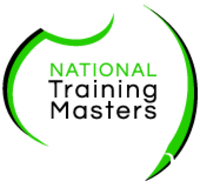
This role has a high level of AI exposure. While some human skills are required, many tasks could be automated or replaced by new technology.
Explore all careersField Assistants aid conservation professionals in various outdoor fieldwork tasks, including data collection and maintenance of access trails.
Get qualified to work as a Field Assistant with a course recognised across Australia. Speak to a training provider to learn more.



















Salaries for Field Assistants start at $60,000 per annum and increase as you obtain university qualifications and experience in the field.
 Courses.com.au Team
Courses.com.au Team
There are no clear employment figures for Field Assistants working in Australia right now. They are employed by government agencies such as local government Councils and National Parks and Wildlife, as well as academic institutions and conservation non-profits.
 Courses.com.au Team
Courses.com.au Team
You can get started as a Field Assistant with a VET qualification from the Conservation and Land Management Training Package such as the Certificate IV in Pest Management or Diploma of Conservation and Ecosystem Management. Many Field Assistants begin their careers by joining local environmental groups and completing volunteer assignments. If you are seeking a role with plenty of room for career advancement, you should definitely consider a Bachelor of Environmental Science, Bachelor of Biodiversity and Conservation, or the Bachelor of Science (Ecology and Conservation Biology).
Source: Australian Government Labour Market Insights 2023
 Courses.com.au Team
Courses.com.au Team
Browse occupations related to Field Assistant



Are you looking to kickstart your career in the environmental sector? Enrolling in Field Assistant courses in Melbourne is an excellent pathway to gain hands-on experience and valuable skills needed in roles like Environmental Consultant, Ecologist, and Conservation Officer. With Melbourne's rich biodiversity and various ecosystems, trained Field Assistants are vital for preserving and managing these natural resources.
Numerous reputable training providers in Melbourne offer specialised courses to equip you with the necessary knowledge and competencies. Notable organisations include the Taronga Training Institute, providing the Certificate III in Wildlife and Exhibited Animal Care, and the Kangan Institute. Additionally, AIET offers a Certificate II in Sampling and Measurement, while Thomson Bridge teaches a Certificate II in ESI - Asset Inspection and Testing, among other related training opportunities.
Field Assistants play a critical role in environmental management, making connections with fields such as Environment and Sustainability courses and Environmental Management. By pursuing these Field Assistant courses in Melbourne, you'll ensure you're well-prepared to take on pivotal roles aimed at promoting ecological balance and sustainable practices in urban settings.
Students exploring their career options might also find interest in related job roles such as Environmental Manager, Environmental Advocate, and Sustainability Consultant. These positions often share overlapping responsibilities with Field Assistants, making it advantageous to equip yourself with comprehensive training. For example, Environmental Managers oversee projects that require the expertise of Field Assistants, highlighting the importance of their training in real-world applications.
In metropolitan Melbourne, the demand for skilled Field Assistants and associated environmental roles is on the rise. By gaining qualifications from esteemed institutions like RMIT University and Melbourne Polytechnic, you can set yourself up for a fulfilling career in conservation and environmental management. Embrace the opportunity to make a difference in your community while exploring the various Conservation Trainee and Environmental Educator roles that further your impact in this vital sector.